
Portobelo: Gateway to the Caribbean's Rich Past
Nestled on Panama's northern coast, Portobelo is a picturesque town brimming with history and charm. Founded in 1597, this small yet significant port city was once a bustling hub for Spanish treasure fleets. Today, it stands as a testament to the region's colonial past, with its well-preserved fortifications and ruins that beckon history enthusiasts and curious travelers alike. Portobelo's vibrant culture is palpable as you stroll through its streets lined with colorful houses and lively markets. The town's Afro-Caribbean heritage is celebrated through music, dance, and festivals, making it a dynamic destination for those looking to experience local traditions. The Congo Festival, in particular, is a highlight, showcasing traditional music, dance, and costumes in a spirited celebration of the town's cultural tapestry. For nature lovers, Portobelo offers more than just historical allure. The surrounding region is a paradise for outdoor activities, with lush rainforests, pristine beaches, and crystal-clear waters perfect for snorkeling and diving. Explore the Portobelo National Park, where trails lead to stunning viewpoints and hidden waterfalls, or take a boat tour to nearby islands for a tranquil escape. Whether you're a history buff, a cultural explorer, or an adventure seeker, Portobelo promises a unique and enriching experience that captures the essence of Panama's Caribbean coast.
Local tips in Portobelo
- Visit the ruins of San Lorenzo and Santiago forts to get a glimpse of the city's colonial past.
- Attend the Congo Festival if you're visiting in February for an immersive cultural experience.
- Don't miss snorkeling or diving in the clear waters around Portobelo; the coral reefs are spectacular.
- Explore Portobelo National Park for hiking trails and panoramic views of the Caribbean coastline.
- Try local seafood dishes at the town's eateries for an authentic taste of Afro-Caribbean cuisine.
Portobelo: Gateway to the Caribbean's Rich Past
Nestled on Panama's northern coast, Portobelo is a picturesque town brimming with history and charm. Founded in 1597, this small yet significant port city was once a bustling hub for Spanish treasure fleets. Today, it stands as a testament to the region's colonial past, with its well-preserved fortifications and ruins that beckon history enthusiasts and curious travelers alike. Portobelo's vibrant culture is palpable as you stroll through its streets lined with colorful houses and lively markets. The town's Afro-Caribbean heritage is celebrated through music, dance, and festivals, making it a dynamic destination for those looking to experience local traditions. The Congo Festival, in particular, is a highlight, showcasing traditional music, dance, and costumes in a spirited celebration of the town's cultural tapestry. For nature lovers, Portobelo offers more than just historical allure. The surrounding region is a paradise for outdoor activities, with lush rainforests, pristine beaches, and crystal-clear waters perfect for snorkeling and diving. Explore the Portobelo National Park, where trails lead to stunning viewpoints and hidden waterfalls, or take a boat tour to nearby islands for a tranquil escape. Whether you're a history buff, a cultural explorer, or an adventure seeker, Portobelo promises a unique and enriching experience that captures the essence of Panama's Caribbean coast.
When is the best time to go to Portobelo?
Iconic landmarks you can’t miss
Parque Nacional Portobelo
Explore the breathtaking beauty and rich biodiversity of Parque Nacional Portobelo, a national park in Panama that blends nature and history seamlessly.
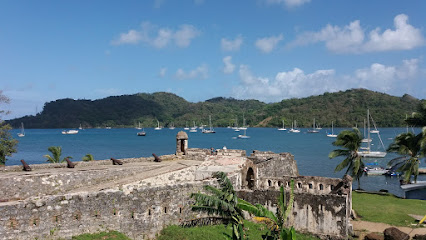
Casa Congo
Discover tranquility and local charm at Casa Congo in Portobelo - the perfect retreat for your Caribbean getaway.

Fuerte San Jerónimo
Explore Fuerte San Jerónimo, a historical gem in Portobelo that reveals Panama's colonial past and offers stunning views of the Caribbean.
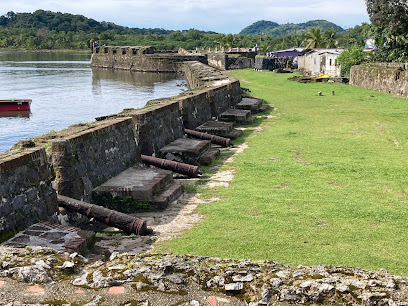
Santiago Battery
Discover the Santiago Battery in Portobelo, a historical landmark steeped in colonial history with stunning views of the Caribbean coast.
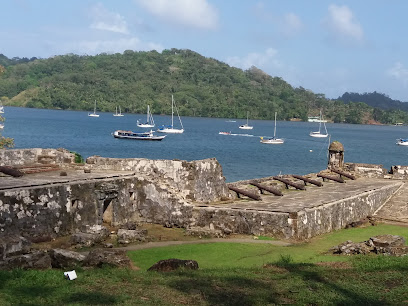
Ruinas de Portobelo, Fuerte Santiago
Uncover the rich history and breathtaking views at the Ruinas de Portobelo's Fuerte Santiago, a UNESCO World Heritage site in Panama's stunning Caribbean coast.
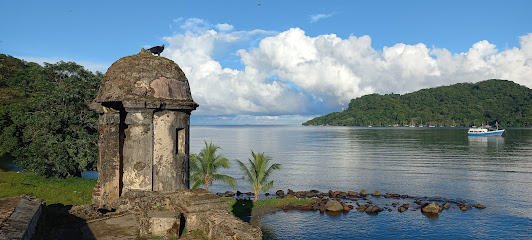
Huerta Beach, Portobelo
Experience the tranquil beauty of Huerta Beach in Portobelo, a serene escape with golden sands and rich cultural history.
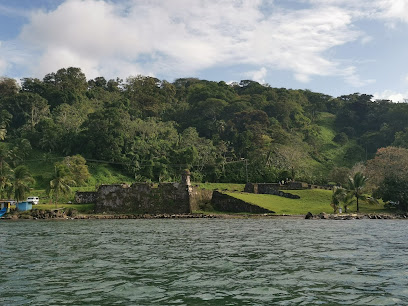
Royal Customs House of Portobelo
Explore the Royal Customs House of Portobelo, a captivating museum showcasing Panama's maritime history and colonial trade significance.
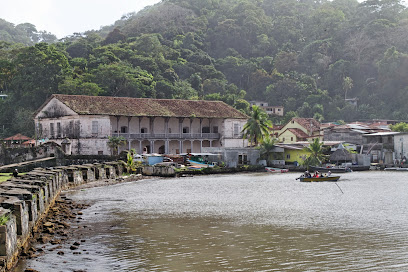
Fortifications on the Caribbean Side of Panama: Portobelo
Explore the historic fortifications of Portobelo, a UNESCO World Heritage site showcasing Panama's rich colonial history and stunning Caribbean views.
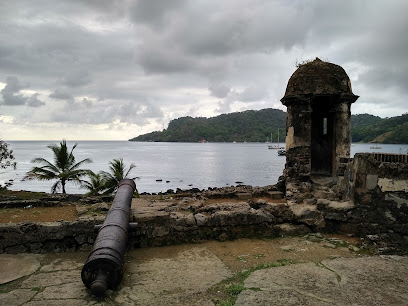
Fort Santiago El Viejo
Discover Panama's colonial heritage at Fort Santiago El Viejo, a historic fortress museum in Portobelo offering captivating insights into its past.
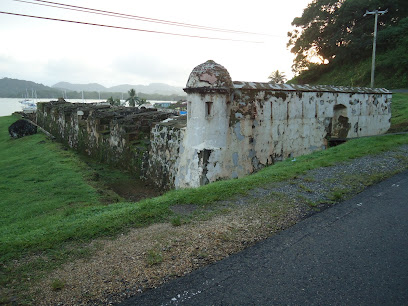
Parkin y avista miento Portobelo
Experience breathtaking views and rich history at Parkin y avista miento Portobelo, a must-see attraction in Panama's Colón Province.
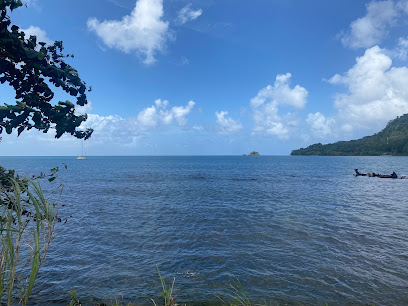
Fuerte de San Fernando
Discover the historical significance and stunning views at Fuerte de San Fernando, a captivating fortress in Portobelo, Panama.
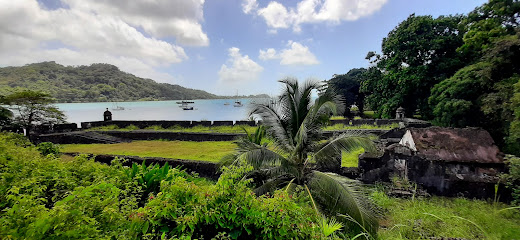
Plaza Central de Portobelo
Experience the rich history and vibrant culture at Plaza Central de Portobelo, a must-visit landmark in Panama.
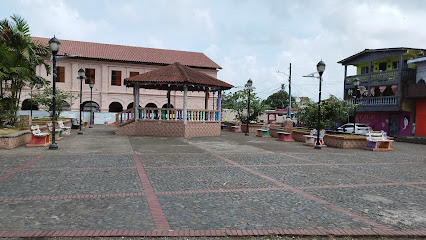
Mi tour Portobelo
Explore the stunning landscapes and rich cultural heritage at Mi Tour Portobelo in Colón Province, Panama, a must-visit tourist attraction.
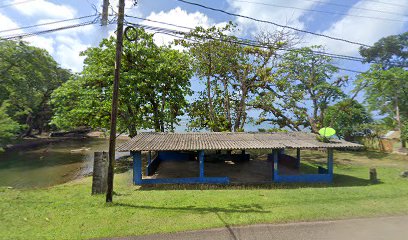
Puerto Bellaco
Explore the breathtaking Puerto Bellaco, a blend of pristine beaches, rich history, and vibrant marine life on Panama's Caribbean coast.

Unmissable attractions to see
Gamboa Rainforest Reserve
Discover the Gamboa Rainforest Reserve: A lush paradise in Panama's Colón Province, perfect for nature lovers and adventure seekers.
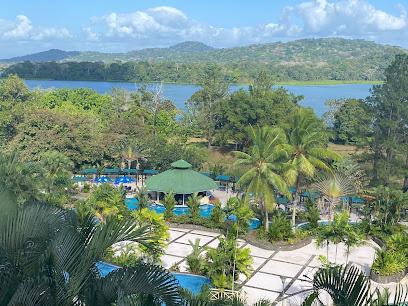
Agua Clara Locks Visitor Center
Experience the architectural wonder of the Panama Canal at the Agua Clara Locks Visitor Center in Colón, where history meets engineering.
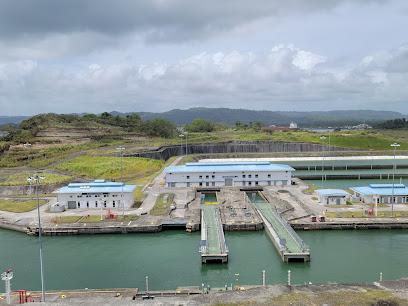
Castillo de San Lorenzo Real de Chagres
Explore Castillo de San Lorenzo Real de Chagres, a historic fortress in Colón, Panama, offering stunning views and rich colonial history in a breathtaking setting.
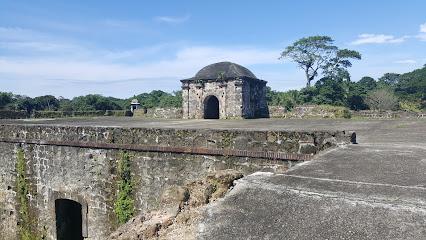
Parque Nacional Chagres
Discover the breathtaking landscapes and rich biodiversity of Parque Nacional Chagres, a must-visit ecological park in Panama for all nature enthusiasts.
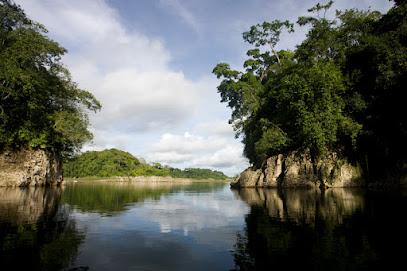
Playa Blanca, Colón
Experience the pristine beauty and vibrant wildlife of Playa Blanca, Colón, a national park that’s a paradise for nature lovers and adventure seekers.
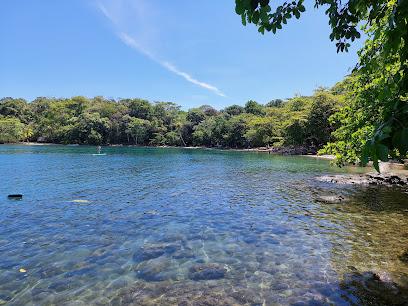
Parque Nacional Portobelo
Explore the lush landscapes and rich history of Parque Nacional Portobelo, a must-visit destination for nature lovers and adventure seekers in Panama.
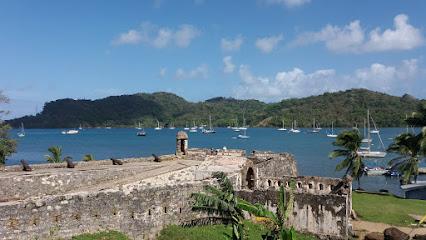
Puerto de Cruceros
Experience the vibrant atmosphere of Puerto de Cruceros, the gateway to Panama's stunning Caribbean adventures and rich cultural heritage.
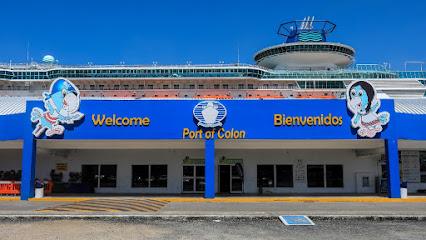
Iglesia de San Felipe
Discover the rich history and architectural beauty of Iglesia de San Felipe in Portobelo, a must-see cultural attraction in Panama.
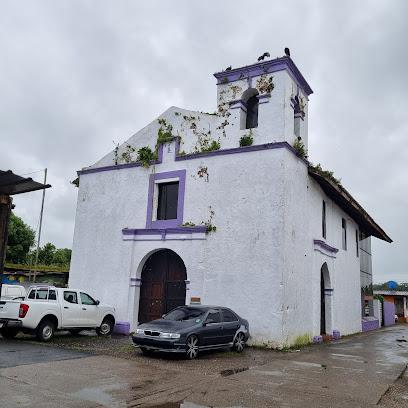
Isla Mamey
Discover Isla Mamey, a serene tropical island in Colón Province, where pristine beaches meet rich biodiversity, perfect for relaxation and adventure.
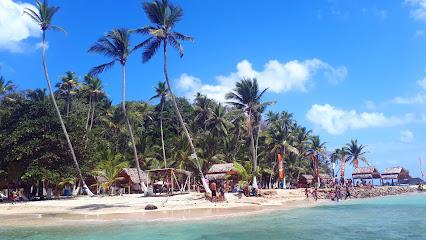
Venas Azules
Discover the stunning natural beauty of Venas Azules in Colón Province, a must-see destination for nature lovers and adventure seekers in Panama.
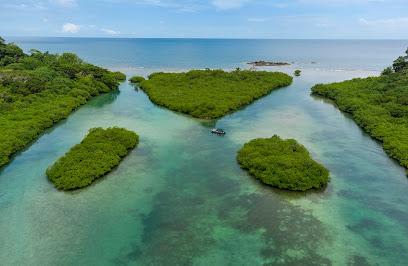
Fuerte San Jerónimo
Explore the historical significance and breathtaking views of Fuerte San Jerónimo, a must-visit landmark in the heart of Portobelo, Panama.
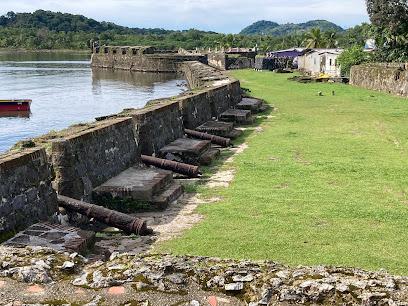
Panama Rainforest Discovery Center
Discover the breathtaking beauty and biodiversity of Panama's rainforests at the Panama Rainforest Discovery Center, a top tourist attraction for nature enthusiasts.
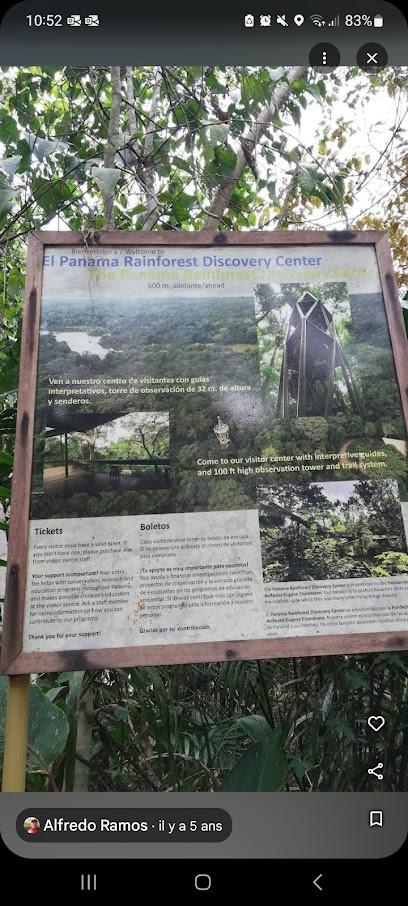
Isla Grande
Explore Isla Grande in Colón Province, Panama: a breathtaking island destination with stunning beaches, vibrant marine life, and rich local culture.
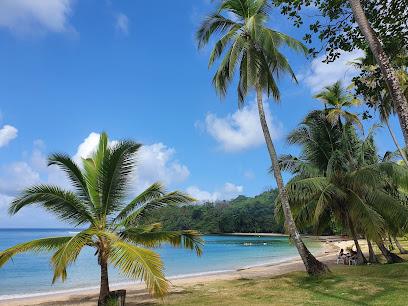
Santiago Battery
Discover the historic Santiago Battery in Portobelo, Panama, a stunning fortress offering rich history and breathtaking Caribbean views.
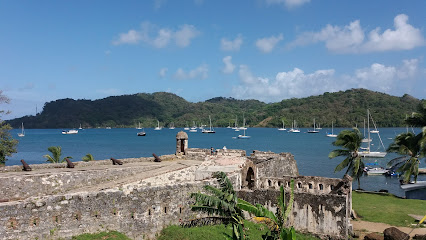
Ruinas de Portobelo, Fuerte Santiago
Discover the historical charm of Ruinas de Portobelo, Fuerte Santiago, where Panama's colonial past meets breathtaking Caribbean views.
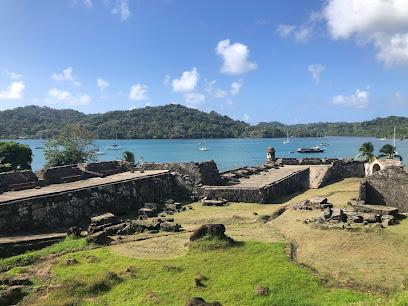
Essential places to dine
Arrecifes
Experience authentic Panamanian cuisine at Arrecifes in Colón – where local flavors meet warm hospitality.
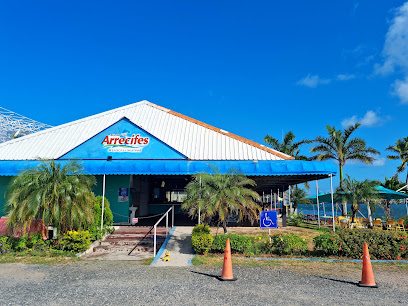
La Vespa Vista Mare
Experience exquisite Italian cuisine with breathtaking ocean views at La Vespa Vista Mare in Panama City.
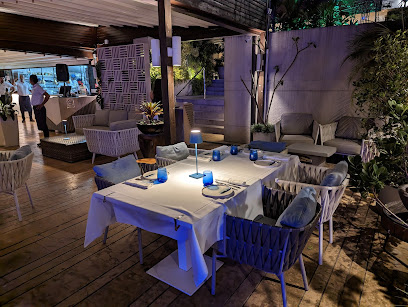
Restaurante El Castillo de Portobelo
Experience exquisite local cuisine with stunning bay views at Restaurante El Castillo de Portobelo in Colón Province.
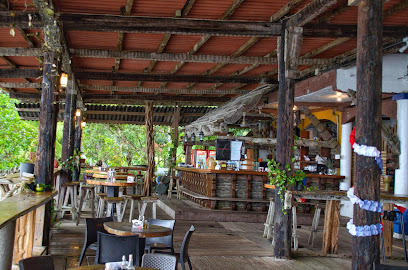
Restaurante Casa Vela
Experience the best of Panamanian cuisine at Restaurante Casa Vela in Portobelo - where every dish tells a story.
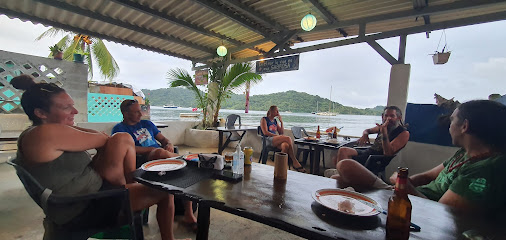
Restaurante Portobelo (Sopas Colón)
Discover authentic Panamanian cuisine at Restaurante Portobelo in Colón, renowned for its traditional soups and vibrant atmosphere.
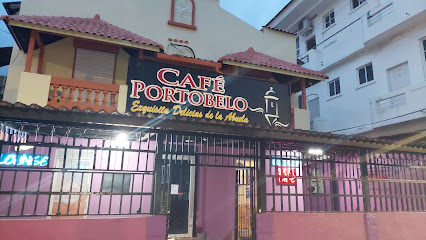
Restaurante Donde Arik
Experience authentic Panamanian flavors at Restaurante Donde Arik in Maria Chiquita - where every dish tells a story.
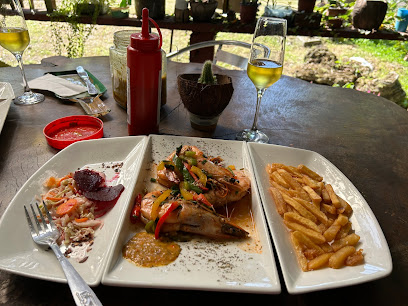
Casa X
Discover authentic Panamanian flavors at Casa X in Garrote - a culinary treasure in Colón Province.
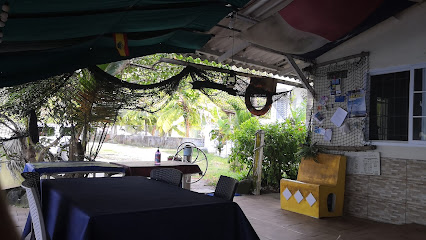
Restaurante Pizzeria Don Quijote
Experience delightful dining at Restaurante Pizzeria Don Quijote in Colón Province, where authentic pizzas meet local flavors.
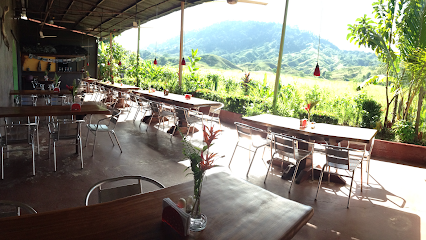
Restaurante La Torre
Experience authentic Panamanian flavors at Restaurante La Torre in Portobelo—where every meal is a celebration of local ingredients.
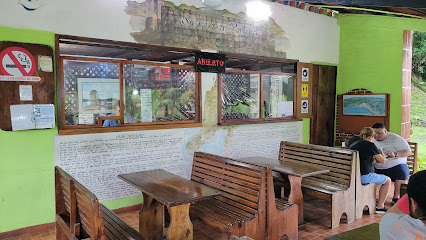
Fonda La Macana
Experience authentic Panamanian cuisine at Fonda La Macana in Garrote - where tradition meets taste!
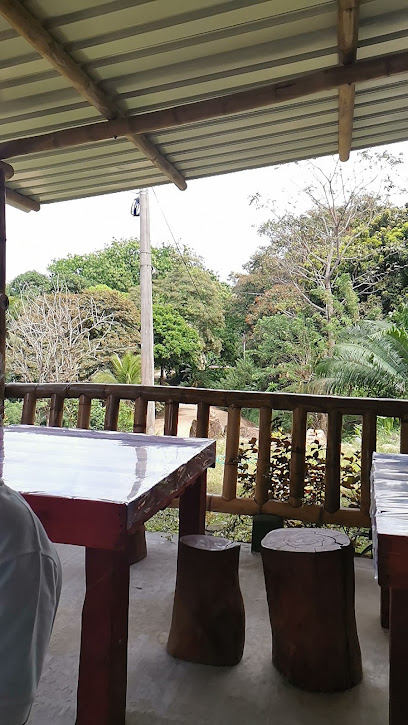
Restaurante Los Cañones
Experience authentic Panamanian cuisine at Restaurante Los Cañones in Portobelo – a culinary delight for every traveler.
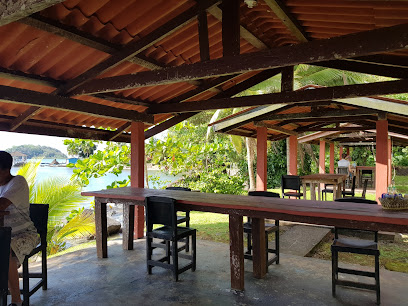
Panama Dive Adventure
Discover breathtaking dives and delectable dining at Panama Dive Adventure in Portobelo, where adventure meets culinary delight.

Buenaventura Jungle, Acuatic Park
Experience an exciting blend of adventure and tranquility at Buenaventura Jungle, Acuatic Park - perfect for families and thrill-seekers alike.
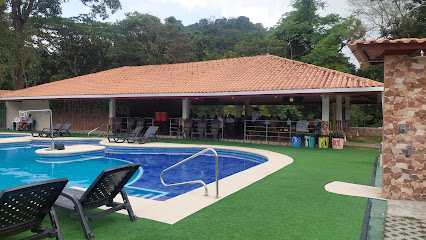
Black Zambombo
Experience authentic Panamanian cuisine at Black Zambombo in Portobelo, where every dish tells a story of rich flavors and local traditions.
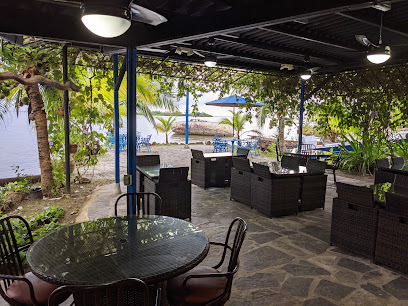
King's Table
Discover culinary excellence at King's Table in Colón - where local flavors meet exceptional dining experiences.
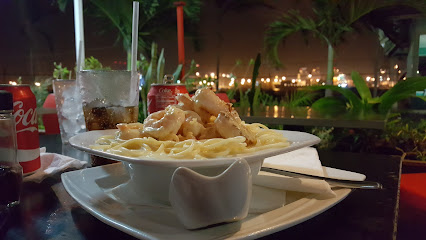
Markets, malls and hidden boutiques
Parque Nacional Portobelo
Discover the stunning landscapes and rich history of Parque Nacional Portobelo, a national park in Panama renowned for its biodiversity and cultural heritage.
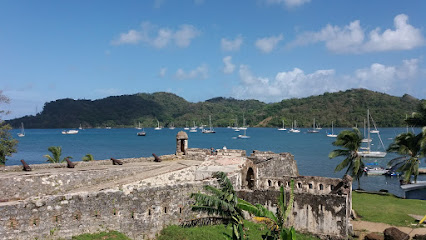
Casa Congo
Discover the artistic charm of Casa Congo, a boutique hotel in Portobelo offering breathtaking views, local cuisine, and a vibrant cultural experience.

el bongo hotel boutique
Discover the charm of El Bongo Hotel Boutique in Portobelo, where luxury meets nature in the heart of Panama.
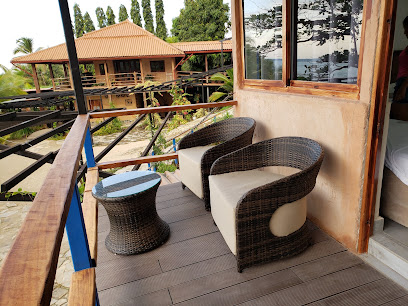
Santiago Battery
Discover the Santiago Battery, a historical landmark in Portobelo, Panama, where history meets breathtaking views of the Caribbean Sea.
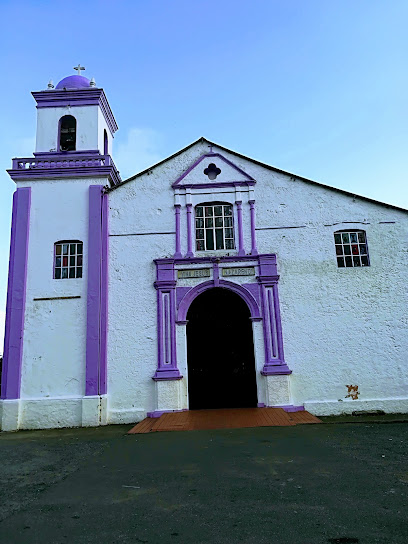
Ruinas de Portobelo, Fuerte Santiago
Explore the historic Ruinas de Portobelo at Fuerte Santiago, a UNESCO World Heritage site with stunning views and rich colonial history.
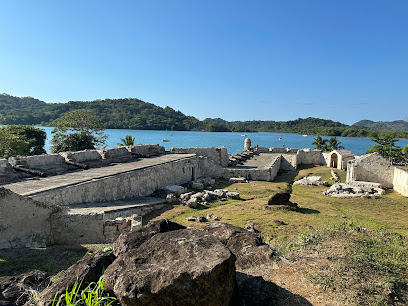
Lo Nuestro
Explore the great outdoors with style at Lo Nuestro, your ultimate destination for outdoor gear and family fun in Playa La Angosta, Colón Province.
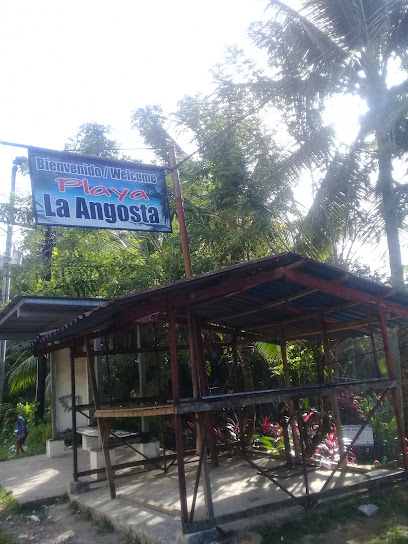
Panaderia Y Restaurante Rico Rico
Experience the authentic taste of Panama at Panaderia Y Restaurante Rico Rico, where fresh baked goods and traditional dishes await.
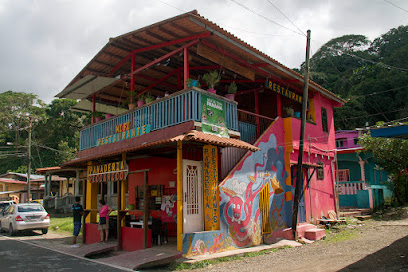
Portobelo Tour
Discover the enchanting Portobelo, a historic Caribbean gem in Panama, where stunning scenery meets rich cultural heritage.
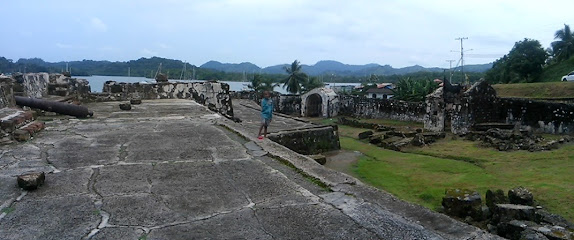
Mini Super Ferreteria Portobello
Explore the heart of Portobelo at Mini Super Ferreteria, your go-to supermarket for local goods and fresh produce in Colón Province.
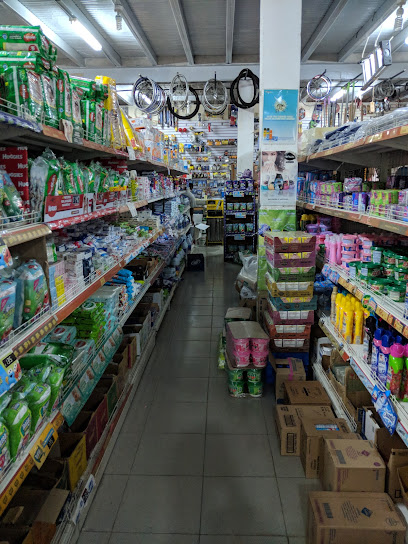
Panama Dive Adventure
Discover the thrill of diving, relax in comfortable accommodations, and savor delightful meals at Panama Dive Adventure in Portobelo, Panama.

Royal Customs House of Portobelo
Delve into the rich maritime history of Panama at the Royal Customs House of Portobelo, a must-visit museum showcasing colonial treasures.
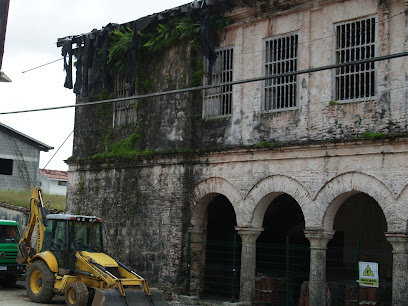
Super centro buenaventura
Explore Super Centro Buenaventura in Portobelo, Panama: Your gateway to local flavors, fresh produce, and essential travel items.
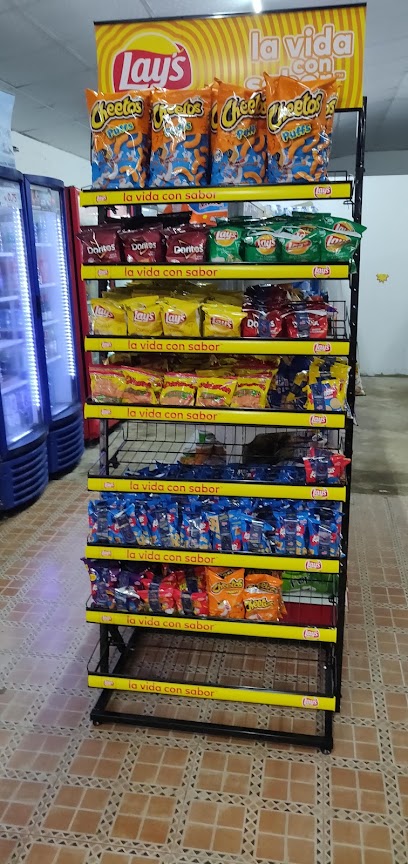
Portobelo
Explore the vibrant fishing pier of Portobelo, where local culture, fresh seafood, and Caribbean beauty come together for an unforgettable experience.
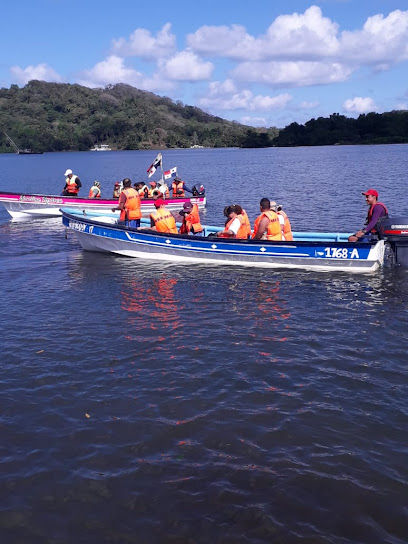
Mini Super Casa Mock
Discover local flavors and essentials at Mini Super Casa Mock in Portobelo, your go-to supermarket for a delightful shopping experience.
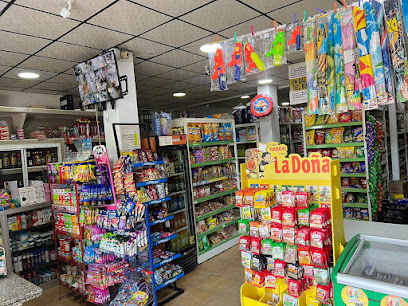
Mini Super Y Ferreteria Andy Jr.
Explore local flavors and essentials at Mini Super Y Ferreteria Andy Jr., the heart of Portobelo's shopping experience.
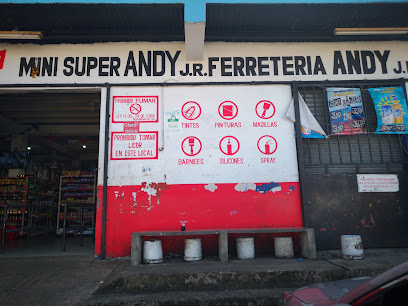
Essential bars & hidden hideouts
Amano Bar
Discover the vibrant nightlife at Amano Bar, where exquisite cocktails and delicious cuisine create an unforgettable experience in Panama City.
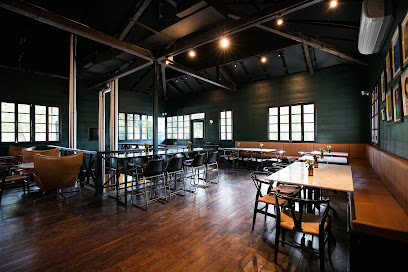
Casa Congo
Experience the tranquil beauty and rich culture of Portobelo at Casa Congo, your perfect coastal retreat in Panama.

el bongo hotel boutique
Discover El Bongo Hotel Boutique in Portobelo - your serene Caribbean retreat offering modern comfort and tropical tranquility.
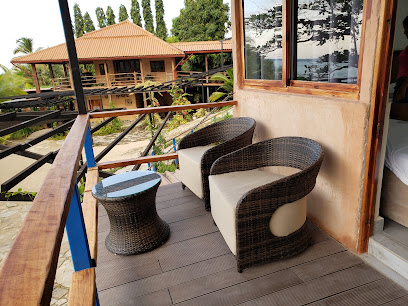
Restaurante El Castillo de Portobelo
Discover the culinary delights of Restaurante El Castillo de Portobelo, where fresh seafood meets breathtaking bay views in a charming setting.
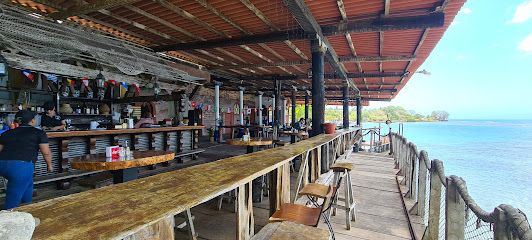
Restaurante Casa Vela
Discover the authentic flavors of the Caribbean at Restaurante Casa Vela in Portobelo, where local ingredients meet traditional recipes.
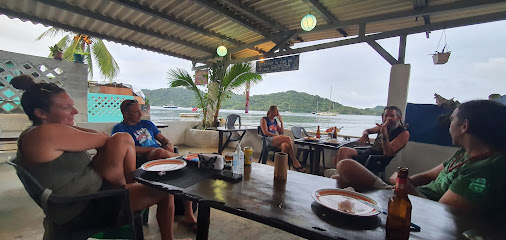
Restaurante Los Cañones
Experience authentic Panamanian flavors and warm hospitality at Restaurante Los Cañones in the heart of Portobelo.
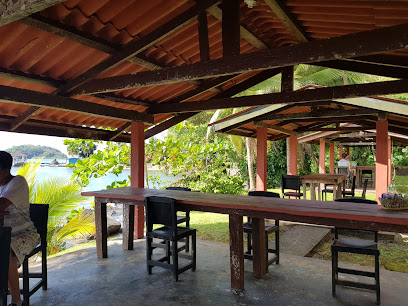
Restaurante la Cueva de Morgan Portobelo”
Experience authentic Italian flavors at Restaurante la Cueva de Morgan in Portobelo, where great food meets a charming atmosphere.
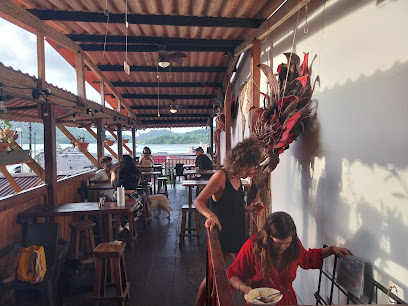
The Triumphant Garden
Discover The Triumphant Garden, a vibrant bar in Portobelo, where lush surroundings and refreshing drinks await your visit.
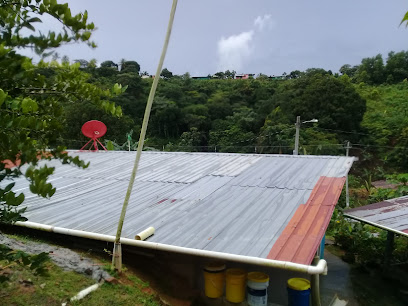
Black Zambombo
Experience the authentic tastes of Panama at Black Zambombo in Portobelo, where fresh seafood meets warm hospitality.
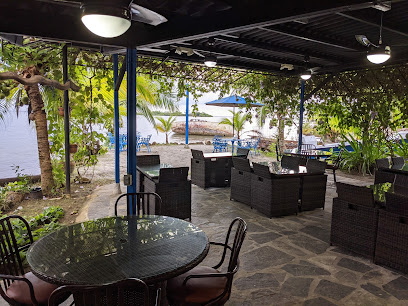
Hostal Portobelo
Discover the vibrant atmosphere of Hostal Portobelo, your ideal base for exploring the rich history and stunning beauty of the Caribbean coast.
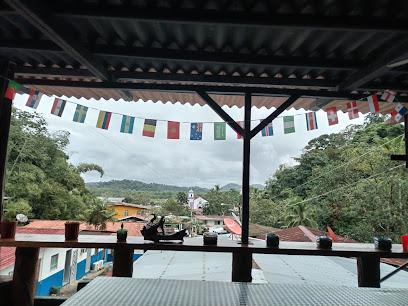
Rancho Sin Fronteras
Relax and unwind at Rancho Sin Fronteras, a vibrant bar in Portobelo offering local flavors and a lively atmosphere for an unforgettable experience.
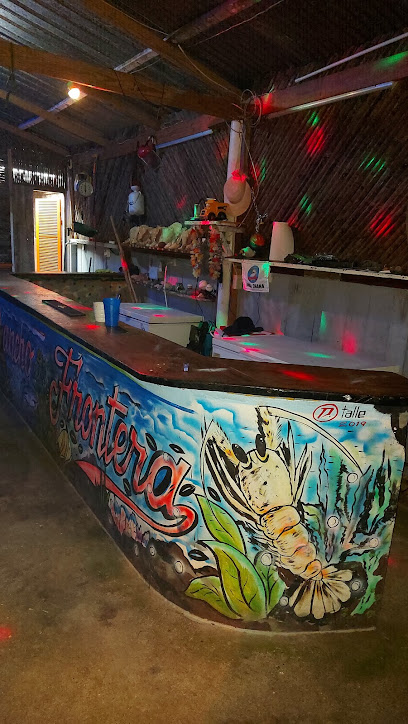
tropic bar and restaurant
Experience tropical flavors and stunning views at Tropic Bar and Restaurant, a culinary gem in Puerto Lindo, Colón Province, Panama.
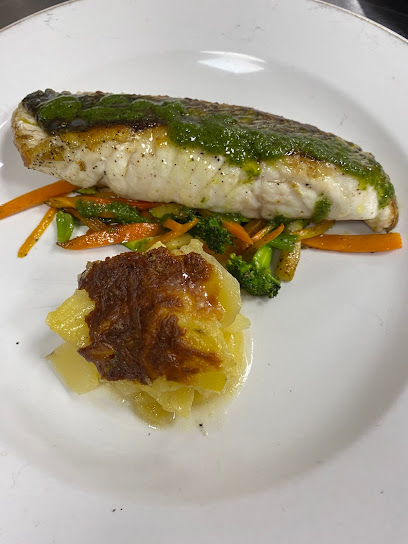
Parrillada Sandoval
Discover the vibrant flavors and lively atmosphere of Parrillada Sandoval in Portobelo, a must-visit bar for every tourist.
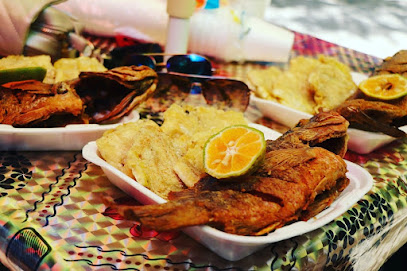
La Cueva del Sapo
Experience the vibrant atmosphere and local culture at La Cueva del Sapo, a lively bar in Colón Province, Panama.
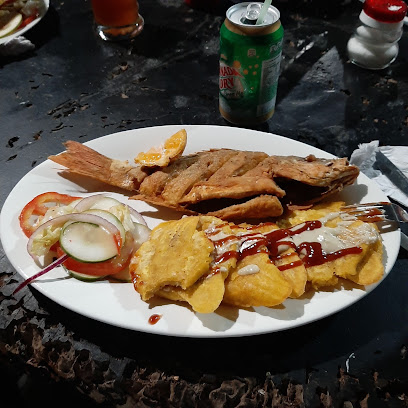
Local Phrases
-
- HelloHola
[oh-lah] - GoodbyeAdiós
[ah-dee-ohs] - YesSí
[see] - NoNo
[noh] - Please/You're welcomePor favor/De nada
[por fah-vor/de nah-dah] - Thank youGracias
[grah-see-ahs] - Excuse me/SorryPerdón/Lo siento
[pair-dohn/loh see-ehn-toh] - How are you?¿Cómo estás?
[koh-moh ehs-tahs] - Fine. And you?Bien. ¿Y tú?
[byen. ee too] - Do you speak English?¿Hablas inglés?
[ah-blahs een-glays] - I don't understandNo entiendo
[noh ehn-tee-ehn-doh]
- HelloHola
-
- I'd like to see the menu, pleaseMe gustaría ver el menú, por favor
[meh goos-tah-ree-ah vehr ehl meh-noo, por fah-vor] - I don't eat meatNo como carne
[noh koh-moh kahr-neh] - Cheers!Salud!
[sah-lood] - I would like to pay, pleaseMe gustaría pagar, por favor
[meh goos-tah-ree-ah pah-gahr, por fah-vor]
- I'd like to see the menu, pleaseMe gustaría ver el menú, por favor
-
- Help!¡Ayuda!
[ah-yoo-dah] - Go away!¡Vete!
[veh-teh] - Call the Police!¡Llama a la Policía!
[yah-mah ah lah poh-lee-see-ah] - Call a doctor!¡Llama a un médico!
[yah-mah ah oon meh-dee-koh] - I'm lostEstoy perdido
[ehs-toy pair-dee-doh] - I'm illEstoy enfermo
[ehs-toy ehn-fehr-moh]
- Help!¡Ayuda!
-
- I'd like to buy...Me gustaría comprar...
[meh goos-tah-ree-ah kohm-prahr] - I'm just lookingSolo estoy mirando
[soh-loh ehs-toy mee-rahn-doh] - How much is it?¿Cuánto cuesta?
[kwan-toh kwehs-tah] - That's too expensiveEsto es demasiado caro
[ehs-toh ehs deh-mah-syah-doh kah-roh] - Can you lower the price?¿Puedes bajar el precio?
[pweh-dehs bah-hahr ehl pree-syoh]
- I'd like to buy...Me gustaría comprar...
-
- What time is it?¿Qué hora es?
[keh oh-rah ehs] - It's one o'clockEs la una
[ehs lah oo-nah] - Half past (10)Y media (10)
[ee meh-dee-ah (dies)] - MorningMañana
[mah-nyah-nah] - AfternoonTarde
[tahr-deh] - EveningNoche
[noh-cheh] - YesterdayAyer
[ah-yehr] - TodayHoy
[oy] - TomorrowMañana
[mah-nyah-nah] - 1Uno
[oo-noh] - 2Dos
[dohs] - 3Tres
[trehs] - 4Cuatro
[koo-ah-troh] - 5Cinco
[seen-koh] - 6Seis
[says] - 7Siete
[syeh-teh] - 8Ocho
[oh-choh] - 9Nueve
[nweh-veh] - 10Diez
[dyes]
- What time is it?¿Qué hora es?
-
- Where's a/the...?¿Dónde está...?
[dohn-deh ehs-tah] - What's the address?¿Cuál es la dirección?
[kwal ehs lah dee-rehk-syohn] - Can you show me (on the map)?¿Puedes enseñarme (en el mapa)?
[pweh-dehs ehn-seh-nyar-meh (ehn ehl mah-pah)] - When's the next (bus)?¿Cuándo es el próximo (autobús)?
[kwan-doh ehs ehl proh-ksee-moh (ow-toh-booos)] - A ticket (to ....)Un boleto (a ....)
[oon boh-leh-toh (ah)]
- Where's a/the...?¿Dónde está...?
History of Portobelo
-
Portobelo was discovered by Christopher Columbus during his fourth voyage to the New World in 1502. The town was officially founded in 1597 by Spanish explorer Francisco Velarde y Mercado. The name Portobelo, meaning 'beautiful port', was given due to its naturally deep harbor, which provided an ideal location for ships to anchor safely.
-
Portobelo became one of the most important ports in the Spanish Main during the colonial era. It served as a key transfer point for the Spanish treasure fleet, where gold and silver mined from Peru and other South American colonies were loaded onto ships bound for Spain. The annual trade fair, known as the 'Ferias de Portobelo', was a major event attracting merchants and traders from all over the Spanish Empire.
-
Due to its wealth, Portobelo was a frequent target for pirate attacks. Among the most notable raids was the 1668 attack led by the infamous Welsh pirate Henry Morgan. Morgan and his men sacked the town and took its riches, leaving a trail of destruction. The repeated pirate threats led the Spanish to strengthen the town's defenses over time.
-
To protect against pirate incursions, the Spanish built a series of forts around Portobelo. The most significant of these are Fort San Lorenzo, Fort Santiago, and Fort San Jerónimo. These forts are exemplary of Spanish military architecture of the period and feature thick stone walls, cannons, and strategic positioning to guard the harbor and surrounding area.
-
The strategic importance of Portobelo began to wane in the late 18th century. The decline of the Spanish Empire, coupled with the shift of trade routes and the increasing threat posed by British naval forces, led to the town's gradual abandonment. By the early 19th century, Portobelo had lost much of its former glory and was largely forgotten.
-
Portobelo is also known for its vibrant Congo culture, which traces its roots to African slaves brought to the region during the colonial period. The town hosts the annual Festival de Diablos y Congos, a lively event featuring traditional dances, music, and colorful costumes that celebrate the unique heritage and resilience of the Afro-Panamanian community.
-
In 1980, Portobelo, along with the nearby Fort San Lorenzo, was designated a UNESCO World Heritage Site. This recognition was given to protect and preserve the town's historical and cultural significance, as well as its remarkable colonial architecture. Today, Portobelo attracts history enthusiasts and tourists who come to explore its rich past and scenic beauty.
Portobelo Essentials
-
Portobelo is located on the northern coast of Panama, within the Colón Province. The closest major airport is Tocumen International Airport in Panama City, which is approximately 120 kilometers away. From Panama City, you can take a bus from the Albrook Bus Terminal to Portobelo, which typically takes around 2 to 3 hours. Alternatively, taxis and private shuttles are available for a more direct and comfortable journey.
-
Portobelo is a small town, and many of its attractions are within walking distance. For longer trips, local taxis are available but may be less frequent compared to larger cities. Buses connect Portobelo with nearby towns and Panama City. Renting a car is another convenient option, allowing you to explore the surrounding areas at your own pace.
-
The official currency in Panama is the Panamanian Balboa (PAB), which is pegged 1:1 with the US Dollar (USD). US Dollars are widely accepted and used interchangeably with Balboas. Credit cards are accepted in most hotels, restaurants, and larger shops in Portobelo, but it is advisable to carry cash, especially for smaller establishments and local markets. ATMs are available, but it's recommended to withdraw sufficient cash in Panama City before traveling to Portobelo.
-
Portobelo is generally safe for tourists, but as with any travel destination, it is important to take standard precautions. Avoid walking alone at night in unfamiliar areas and keep an eye on your belongings in crowded places. Some areas in the Colón Province, outside of the tourist zones, have higher crime rates; it is best to stay within well-traveled areas and always be aware of your surroundings.
-
In case of emergency, dial 911 for immediate assistance. Portobelo has a local police station and medical facilities, although for more serious medical emergencies, you may need to travel to Colón or Panama City. It is highly recommended to have travel insurance that covers medical emergencies. Pharmacies in Portobelo can provide over-the-counter medications for minor health issues.
-
Fashion: Do dress comfortably and modestly, especially when visiting historical or religious sites. Avoid wearing overly revealing clothing. Religion: Do respect local customs and traditions, especially in religious settings like churches. Cover your head when appropriate. Public Transport: Do be respectful and polite to other passengers. Don't eat or drink on public transport. Greetings: Do greet people with a friendly 'Hola'. A handshake is also a common form of greeting. Eating & Drinking: Do try local dishes and accept food offerings graciously. Don't refuse hospitality, as it may be considered impolite.
-
To experience Portobelo like a local, visit the local markets where you can buy fresh seafood and traditional Panamanian goods. Engage with locals, as they are often friendly and willing to share stories about the town's rich history. Don't miss visiting key historical sites like the Portobelo National Park and the ruins of the colonial fortifications. For a unique experience, consider taking a boat tour to nearby islands or exploring the underwater world through snorkeling or diving.
Trending Landmark in Portobelo
-
Parque Nacional Portobelo
-
Casa Congo
-
Fuerte San Jerónimo
-
Santiago Battery
-
Ruinas de Portobelo, Fuerte Santiago
-
Huerta Beach, Portobelo
-
Royal Customs House of Portobelo
-
Fortifications on the Caribbean Side of Panama: Portobelo
-
Fort Santiago El Viejo
-
Parkin y avista miento Portobelo
-
Fuerte de San Fernando
-
Plaza Central de Portobelo
-
Mi tour Portobelo
-
Puerto Bellaco
Nearby Cities to Portobelo
-
Things To Do in Colon
-
Things To Do in Panama City
-
Things To Do in San Blas Islands
-
Things To Do in Chitre
-
Things To Do in Las Tablas
-
Things To Do in Bocas del Toro
-
Things To Do in Boquete
-
Things To Do in David
-
Things To Do in Puerto Viejo
-
Things To Do in Volcan
-
Things To Do in Cartagena
-
Things To Do in Sincelejo
-
Things To Do in San Jose
-
Things To Do in Manuel Antonio
-
Things To Do in Jaco













